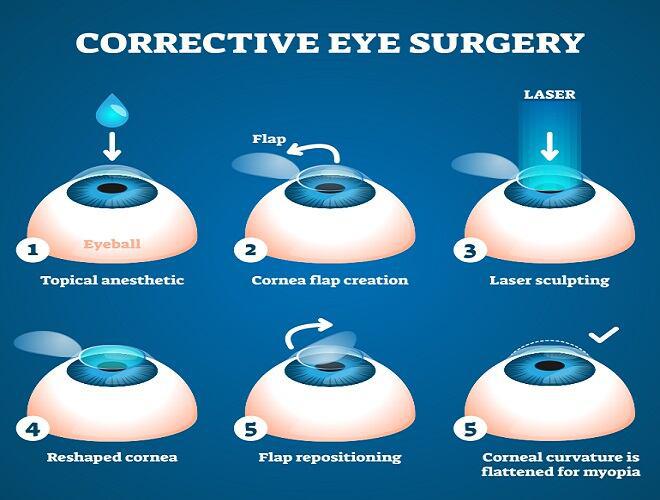LASIK is a surgical procedure that uses a laser to reshape the cornea, the clear dome-shaped covering at the front of your eye. By changing the cornea’s curvature, LASIK can correct refractive errors like nearsightedness (myopia), farsightedness (hyperopia), and astigmatism, allowing light to focus more precisely on the retina at the back of your eye, resulting in clearer vision.

How does LASIK work?
The LASIK procedure typically involves these steps:
- Creating a corneal flap: Using a special instrument called a microkeratome or a femtosecond laser, your surgeon creates a thin, hinged flap in the outer layer of your cornea.
- Reshaping the cornea: After lifting the flap, your surgeon uses an excimer laser to ablate (remove) a precise amount of corneal tissue, effectively reshaping the cornea to correct your refractive error.
- Repositioning the flap: The corneal flap is then gently repositioned and allowed to heal naturally, adhering back to the underlying cornea without stitches.
Benefits of LASIK:
- Improved vision: LASIK can significantly improve your vision, potentially eliminating your dependence on glasses or contact lenses.
- Faster recovery: Compared to other laser vision correction procedures like PRK, LASIK typically offers a faster recovery time with less discomfort.
- Long-lasting results: LASIK results are generally considered long-lasting, with many people enjoying good vision for years or even decades after the procedure.
- Safety: LASIK is a safe and effective procedure when performed by a qualified and experienced surgeon.
Things to consider before LASIK:
- Eligibility: Not everyone is a good candidate for LASIK. Your eye doctor will perform a comprehensive eye exam to determine if you’re eligible for the procedure and discuss any potential risks or complications.
- Cost: LASIK can be a costly procedure, and the cost can vary depending on your location, the surgeon’s experience, and the technology used.
- Risks: Like any surgery, LASIK carries some risks, such as dry eyes, glare, halos, and infection. However, these risks are typically minor and temporary, and most people experience no long-term complications.
Overall, LASIK is a safe and effective way to improve vision for many people. If you’re considering LASIK, it’s important to talk to Dr. Hossam Elbarbary to determine if you’re a good candidate and to discuss the risks and benefits of the procedure.
I hope this information is helpful! Let me know if you have any other questions about LASIK.
